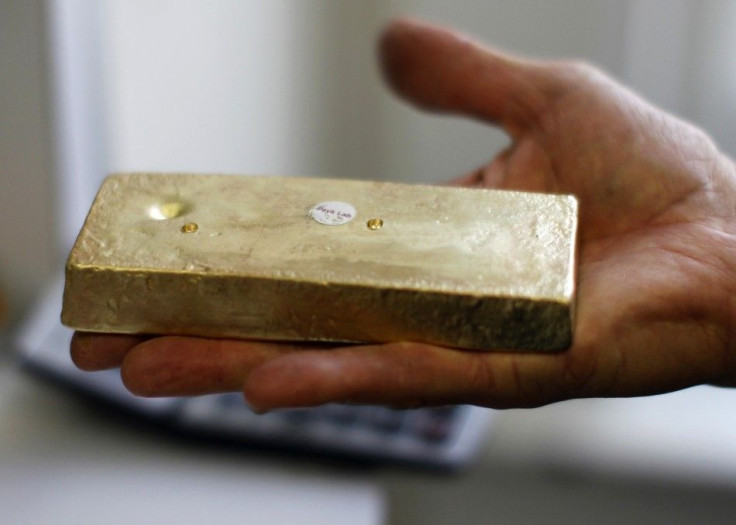5 Reasons Gold Prices Just Took a Big Dive

Gold prices plummeted in the last week more than 10 percent, their biggest such drop since 1983, in a plunge that left the metal's reputation as safe-haven investment bruised, or worse.
There are five key reasons why gold swooned, some of which are likely to reoccur sooner than later and others that are less likely to reoccur, at least in the near future.
Profit-taking. In the last 12 months gold has booked a 26 percent gain. That's a tempting target for any investor who wants to lock in big gains, especially when other investments may be tanking.
Technical/computer selling. Once the market experiences a certain level of selling, computer programs trigger additional selling, creating a downward spiral that may exceed what individual investors may want. Once that computer-generated selling kicks in, it takes a number of sessions to unwind.
Risk aversion. For investors who prefer to sleep well rather than eat well -- to apply a common investing bromide -- there are an amazing number of things to keep them up at night. The big picture is exploding sovereign debt on both sides of the Atlantic Ocean. On one side is Europe's sovereign debt crisis. Leaders there are trying to put a financial fence around Greece, which is widely expected to default. On the other side is the U.S. national debt, measured in the tens of trillions of dollars. Add to the debt crises, the apparent impotence of leaders on both side of the Atlantic. The level of acrimony and indecision that marks leaders in both Europe and the U.S. appears to be a historic levels. Add to these threats the possibility of a double-dip recession and it becomes hard to some investors to hold on to their precious metals.
Margin hikes. Last Friday evening, the CME Group said it was raising margins on both gold and silver contracts traded on the New York Mercantile Exchange. On Tuesday, the Shanghai Gold Exchange said trading margins for its gold and silver forward contracts would be raised temporarily from Friday ahead of a week-long national holiday. When investors have to put up more money to trade futures contracts, it limits the amount of money they can use to play in such markets, thus limiting demand for such securities.
Liquidity needs. Many investors and investment houses needed cash. Some needed them to cover losses elsewhere; others needed cash to rebalance portfolios so those portfolios maintain predetermined asset allocations. And then there were some that needed the cash to adjust to the margin hikes coming from the CME Group and the Shanghai Gold Exchange.
© Copyright IBTimes 2024. All rights reserved.






















